Macbeth
Applied Shakespeare -- Which Plays Best Illuminate Our Current Political Climate?
May/22/2018 18:02
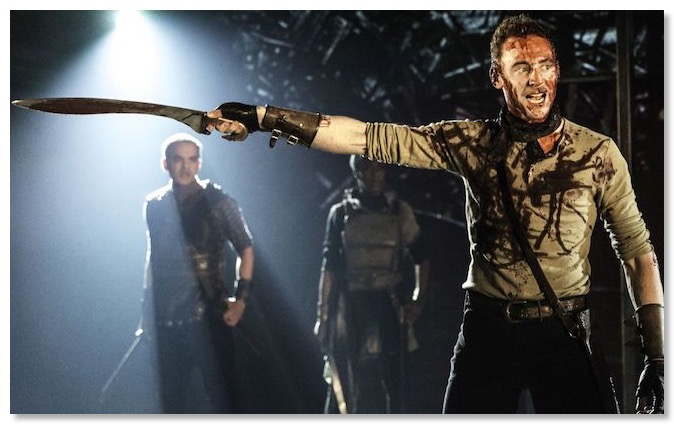
Harvard Professor Stephen Greenblatt's new book "Tyrant", is out, and has received another smart review. While leveling a few criticisms, reviewer Charles McNulty praises the book for deftly suggesting which of Shakespeare's plays best help inform our current political climate. There are some genuinely interesting insights, and one is reminded yet again of the sheer depth of Shakespeare's insights into the human condition, in this case, around the idea of how we are ruled, and what drives our rulers. Read the article to see where McNulty thinks Greenblatt got things right, and where he thinks Greenblatt got things wrong.
Mixed Reviews
May/16/2018 13:12

Part of the challenge in enjoying Shakespeare, is actually getting to see a good production. Theater critics therefore act as important gatekeepers for audiences, since with their practiced eyes (and professional obligation) they can not only steer audiences to better performances, but also provide valuable historical perspective to any modern production. But of course, critics differ (everyone's a critic, right?) so in this post we provide links to two reviews — one favorable, one less so — of the RSC and Christopher Ecclestone's current production of Macbeth. Seeing two contrasting reviews helps us further understand both the play, and audiences who consume those plays. In the unfavorable camp: The Daily Telegraph's Dominic Cavendish review. The favorable camps is represented by The Guardian's Michael Billington. Here is his review.
Film of the Play
May/16/2018 13:01
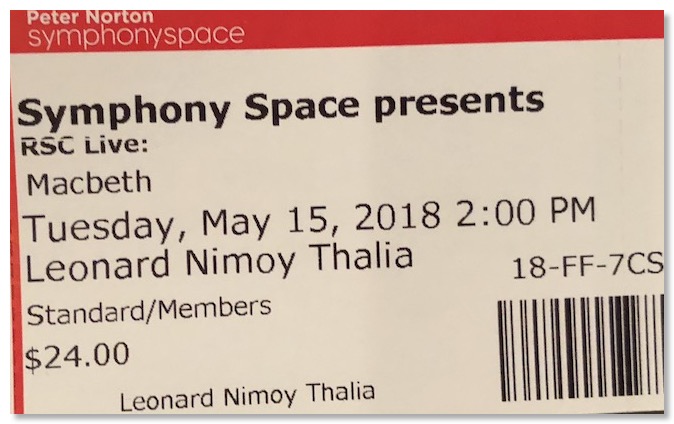
The Royal Shakespeare Company's Macbeth came to a New York movie screen yesterday, and the effect was not quite as electric as the Julius Caesar of three weeks ago. The good news, perversely, is that the problem lies not in the medium, but the performance. Although some of the acting and staging worked well, the overall impression was somewhat heavy and lacked subtlety, particularly from the supporting cast. The reason this seems like good news to me, is that the filmed-play-in-a-cinema medium seems sufficiently good to allow viewers/watchers to make such judgements. So bravo to the whole concept of filmed plays shown in movie theaters — yet another stage on which Shakespeare's works can shine!
Stamp of Approval (Part 2)
April/10/2018 15:50
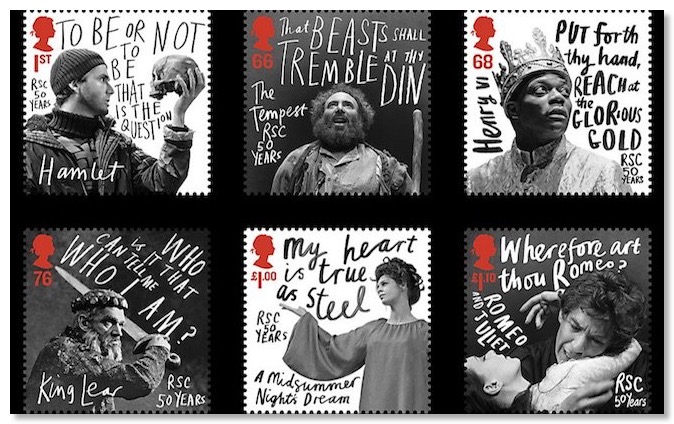
Our first post on commemorative stamps got us interested in how Shakespeare is represented on postage stamps. So we dug around, and found two things. First, from Hat Trick Designs and Marion Deuchars, this series of six stamps that came out in 2011 to commemorate the 50th anniversary of the Royal Shakespeare Company's founding. Starting at top left, here is the key to actors and plays respectively: David Tennant (Hamlet), Anthony Sher (The Tempest), Chuk Iwuji (Henry VI), Paul Scofield (King Lear), Sarah Kestelman (A Midsummer Night's Dream) and Ian McKellen and Francesca Annis (Romeo and Juliet).
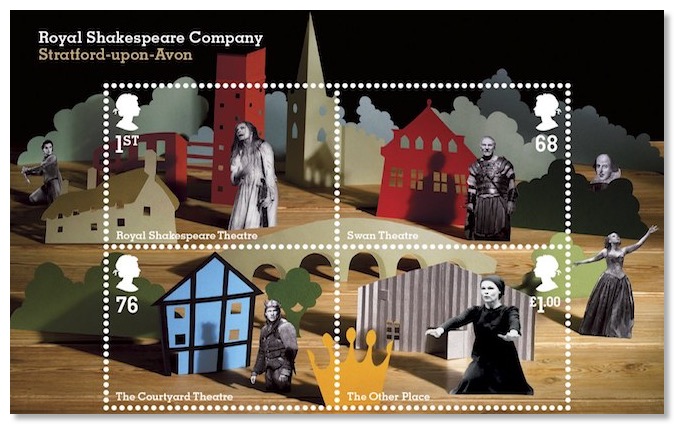
From the same anniversary, and with the aid of illustrator Rebecca Sutherland, a set of four stamps, in a very different style, showing the four Stratford on Avon theaters. The actors are harder to identify, but we think they are, from top left and going clockwise: Francesca Annis, Patrick Stewart, Ian McKellen, and Judy Dench.
Unsex Me Here
April/02/2018 18:26
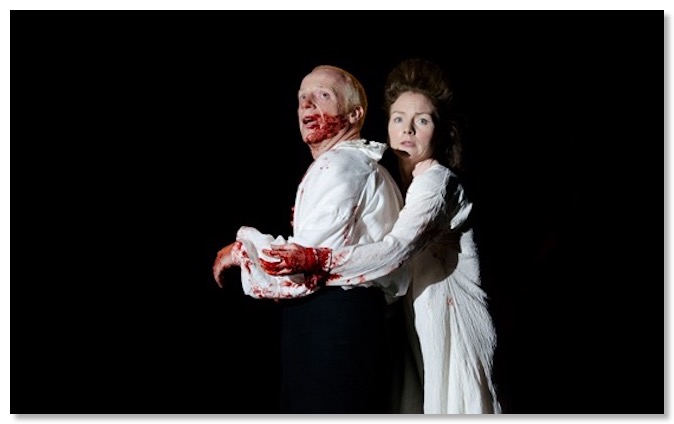
David Crystal, noted linguist and father of the excellent Ben Crystal, lays out in great and fascinating detail the words and phrases that Shakespeare brought to life in Macbeth. That one man could produce (and have adopted into the vernacular) so many great and powerful words and phrases in just one play, is simply astonishing. For teachers helping students grapple with Shakespeare's language, this really is a wonderful article.
Two Macbeths, No Praise
March/31/2018 14:37
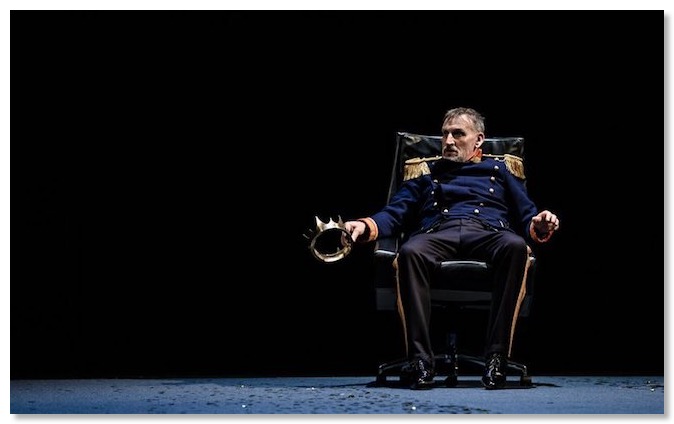
Hard on the heels of a favorable review of the latest RSC version of Macbeth, an altogether less kind review, which suggests that success in staging Macbeth is comparatively hard, as opposed to -- say -- Hamlet. An interesting comparison, and a thought provoking review. Two Macbeths currently in production — one at the Royal Shakespeare Company, the other at The National Theatre — get reviewed, and neither fares well
The Power of an Image
March/24/2018 18:18
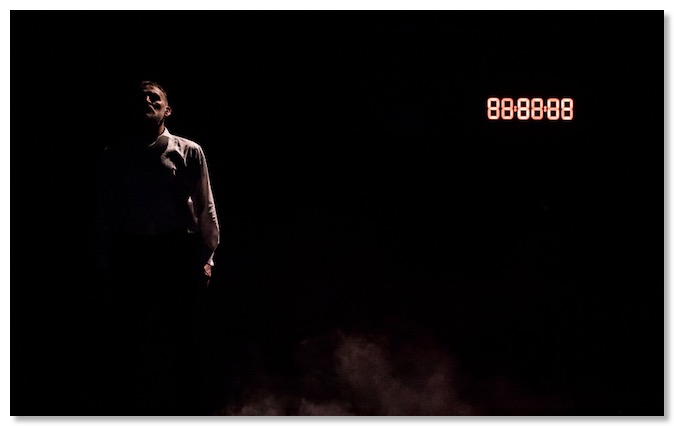
Class discussion can often be made more dynamic and energetic by using images from different productions, or even images from a single production. This link to the Royal Shakespeare Company's image gallery of its current production of Macbeth is such a resource. Some questions teachers might ask include (but are definitely not limited to): What does the costuming tell you about the production? Is the blood displayed indicative of a restrained, or hyperbolic production? What modern visual concepts does the director use, and why might he have used them? What ideas might you take from these production images if you were putting on the play? Can you guess the various characters from the way they look?
A Lost Child, A Lost Kingdom
March/22/2018 16:45
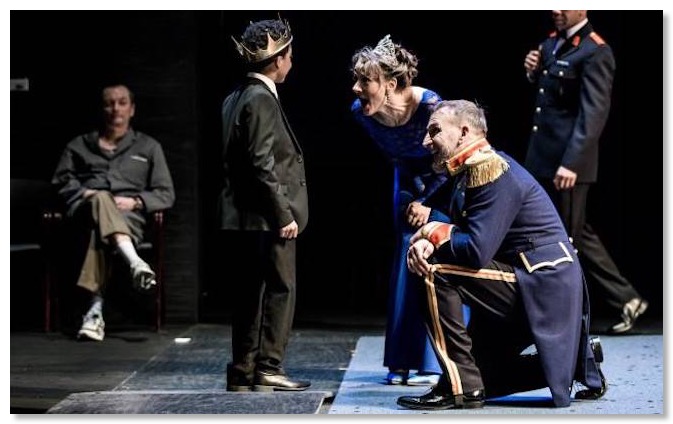
A mixed but mostly positive review of the Royal Shakespeare Company's latest offering of Macbeth, with noted Dr. Who actor Christopher Eccleston, ably accompanied by Niamh Cusack as Lady M. As with Michael Fassbender's 2015 movie version, the loss of their child underpins many of the conceits of this production, working sometimes, but not always, in particular in the second half of the production. See the review here.
Is This a Stick Figure I See Before Me?
March/15/2018 09:45
Shakespeare: profound, far reaching, capable of the deepest insights into the human soul, etc. So how could stick figure cartoons possibly capture even the smallest part of his oeuvre? Well, Good Tickle Brain somehow manages to do this, and more. For young students, this may possibly provide a helpful first step. Adults too, for that matter.
Don't Judge The Accent. Judge the Acting
February/22/2018 09:41
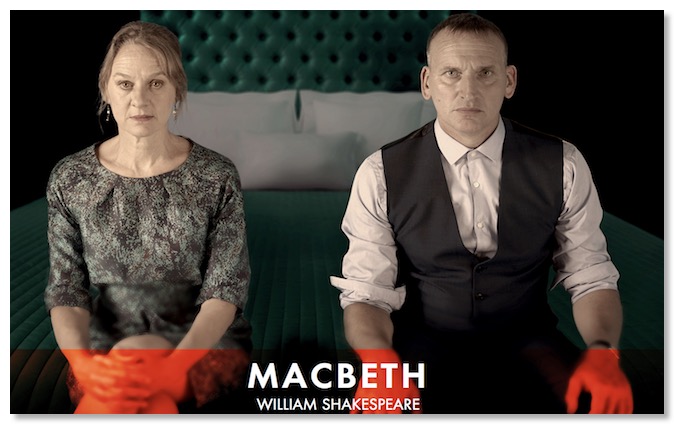
A great interview with Christopher Eccleston, an English actor perhaps best known for being the ninth doctor in the storied Dr. Who series. The interview has two great talking points — the fact that accents matter very little in performance (take note those who say that only the English can perform "true Shakespeare"), and also, now that it has been announced that the 13th Doctor Who will be a woman (Jodie Whittaker), that a time is coming when women can — and should — take on the great (traditionally male) roles in Shakespeare's plays. A very humane and thoughtful discussion. Eccleston will play Macbeth in a new RSC production opening in March.
An Embarrassment...
February/16/2018 13:59
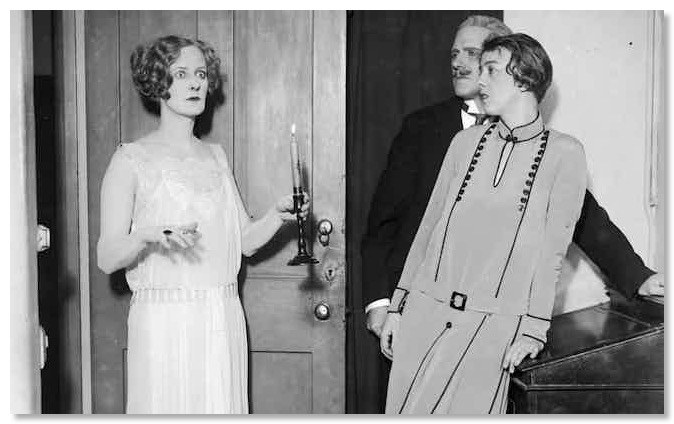
A harsh (and to some extent amusing) editorial piece on a 1928 production of Macbeth. The chief complaint is that the performance is set in modern (that is, circa 1928) dress, and that this impedes the understanding and enjoyment of the play. Shakespeare has come a long way in the last 90 years…
Power to the People!
February/02/2018 09:50
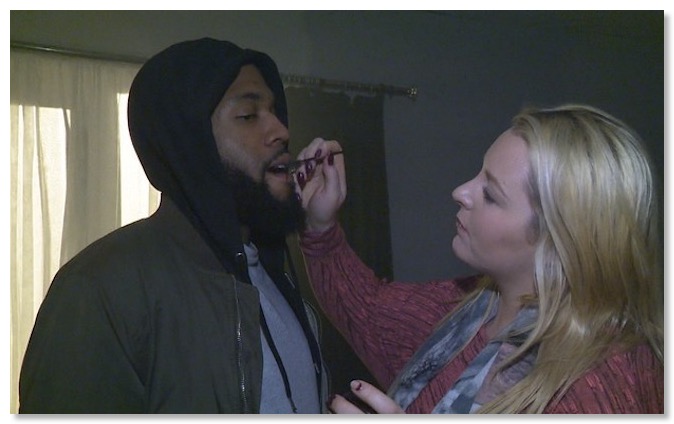
An interesting approach to making a film of Macbeth, using both professionals, and local amateurs in the overall production process. The trailer for the actual movie (not yet out) looks intriguing, and the production's sentiment genuinely admirable. Nicely done, Screen Northants.
Permission to Speak
January/11/2018 17:45
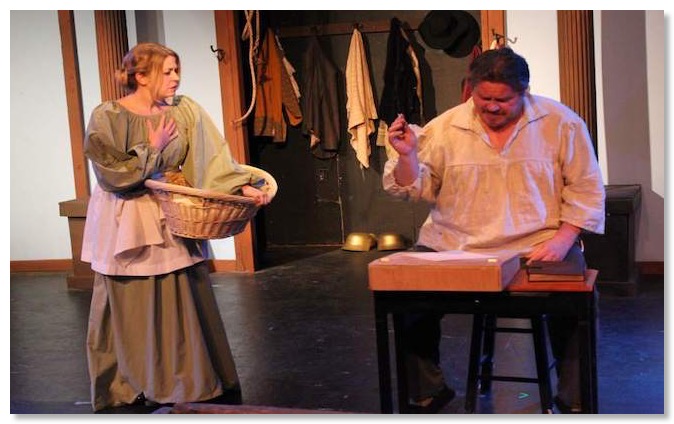
Michael Axel, right, as Shagspeare, performs alongside Emilty Cady, as Judith, in "Equivocation," a play that imagines a
scenario in which Shakespeare has been commissioned as a government propagandist.
Bend, Oregon's 2nd Street Theater put on an original production, "Equivocation", examining whether playwrights should write about contemporary events, whether in polemical opposition, or as propagandists. An interesting fact that emerges from this review: Shakespeare and his contemporaries were forbidden from writing about current events in their works.